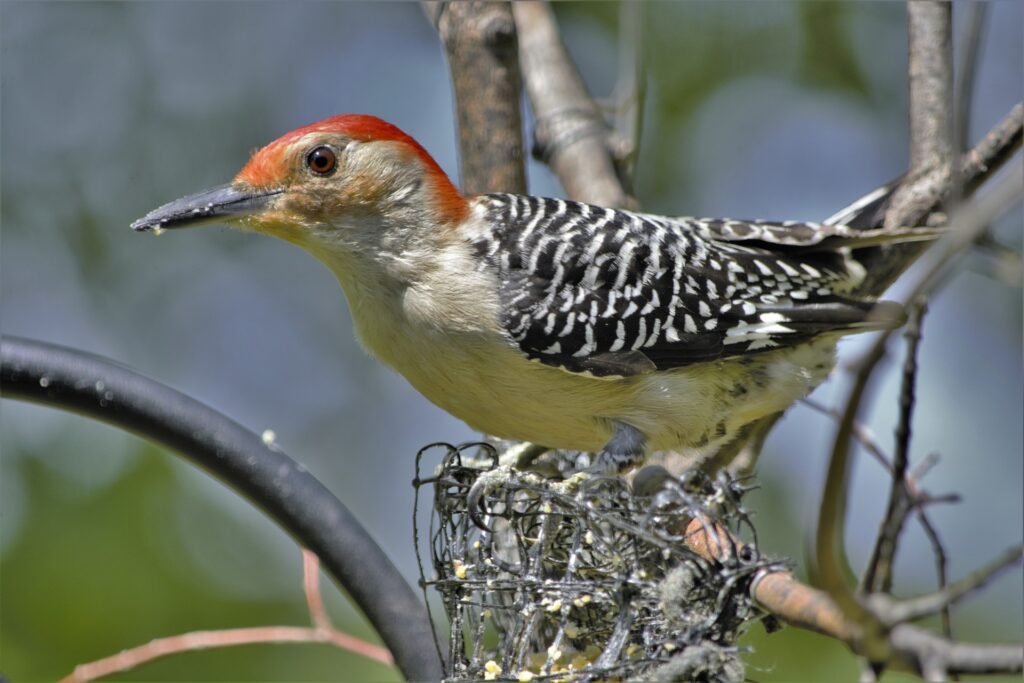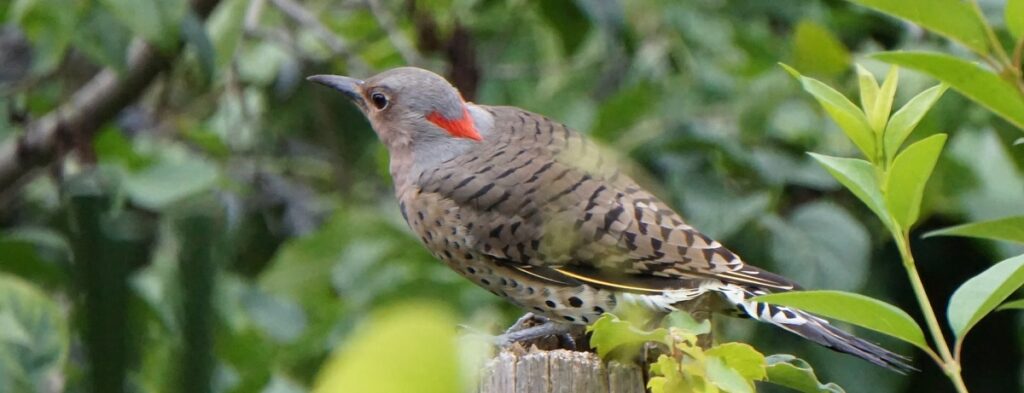Woodpeckers are known for incessantly pecking in search of bugs.
There are eight species of woodpeckers in North Carolina. The most common in Raleigh-Durham are the downy woodpecker and red-bellied woodpecker.
The North Carolina pine forests are the typical habitat for woodpeckers. Woodpeckers are active year round in North Carolina but are most likely to peck at your home during their breeding season which runs February to June.
Woodpeckers peck at your home for one of two reasons. They are either looking for food or signaling to other woodpeckers to stay out of their territory.
The vast majority of woodpeckers are protected by federal law. With that, there are legal limitations on how you can handle a woodpecker problem.

Woodpecker Control

Removal
As migratory, nongame birds, woodpeckers are protected by the Federal Migratory Bird Treaty Act. That limits what can be done to deter woodpeckers. When you want to eliminate these nuisance birds, we can install a motion-detector sound machine and predator decoys to ward them off. If necessary, we will install netting at least three inches away from your home to prevent drilling.

Exclusion and prevention
The key to successful woodpecker prevention is to act as soon as problem behavior starts and to keep up the remedy until the birds relocate. Anything less and the behavior will become habit, which is much harder to control. To keep woodpeckers from pecking or drumming, homeowners can attempt to cover surfaces with mesh, metal, or cloth. The pests might also be redirected if a wooden box is placed in a more desirable location nearby. Individuals can also try visual repellents such as hanging pinwheels, mirrors, balloons, or long strips of foil near problem sites. A variety of noisemaking options exist, including aluminum pie plates, metal can lids, loud radios, or recorded calls of birds of prey.

Repair
Repairing the damaged caused by a woodpecker can be expensive. It is important to fill any woodpecker holes in the siding.
woodpecker on the House
Homes near wooded areas are more likely to encounter a woodpecker problem. The birds make comfortable nests in drilled cavities. With that, it’s possible to find these animals on the exterior walls of your home. That’s especially true if you have wooden walls for the birds to carve out a nest.
Signs of woodpecker Infestation
Although these unique birds prefer trees, most woodpeckers are attracted to any kind of structure as a source of food or shelter. Additionally, some biologists think that the critters might choose to drum on houses to amplify the sound.
The easiest way to know you have a woodpecker problem is the unmistakable sound of drilling into the side of your house. If you’ve heard a woodpecker drilling into a tree, listen for that same noise around your house. In the early spring or fall, a woodpecker might start drilling a hole in your house for the purpose of a nest cavity. The birds are particularly drawn to rotten wood due to its softer nature.
Additionally, these foragers might peck at your home year-round in search of food. Their sharp beaks can drill holes as deep as two inches. Typically, you’ll spot a row of these holes created as the bird looks for food.
Whether a woodpecker is drilling a nest cavity or searching for food, their presence around your home could point to a more significant issue. In the case of nest cavities, it’s important to check your home for rotten wood. And if the bird is simply foraging, then it’s a good idea to look for insect damage.
Ultimately, a visit from a woodpecker is unwelcome. But their drilling can help you spot a more significant issue before it gets out of hand.
Problems with woodpeckers
Woodpecker Damage
When a woodpecker decides to make a nest in your home, it’ll drill a nest cavity in your exterior wall. A new hole in your wall is a downside for obvious reasons. These holes can compromise the structural integrity of your home and act as an entry point for other pests.
But even if they aren’t nesting in your home, woodpeckers can cause a bit of a nuisance. During mating season, the males are especially likely to drum against your home to attract a mate. As they engage in this courtship ritual, they’ll leave a series of holes in your home.
While using your home, woodpeckers can chip paint, make dents, and damage chimneys. All of this damage can get expensive to repair. But the good news is that this critter is unlikely to spread any diseases to your family.

Call Trutech IN
At Trutech, we have the expertise to handle any nuisance wildlife problem you may have.

Our professional team of licensed technicians will quickly and humanely handle your wildlife needs
Quick Links
Business Hours
- Monday-Friday: 7:30am-6pm
- Saturday: 8am-5pm
- Sunday: Closed
